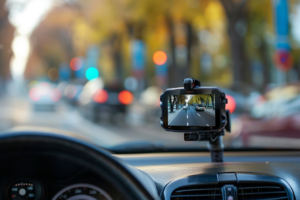Self-driving cars or highly accurate medical robots are the most vivid examples of the way AI brings the boldest futuristic visions into reality. Beyond that, AI-driven technologies also radically change our everyday routine. There is no better example than the way we interact with phones while shopping online. Make no mistake about it: artificial intelligence (AI) is a new gamechanger in mobile marketing.
AI is a top-ranked technology that is about to revolutionize every aspect of human life. The global AI market is expected to grow to $380 billion by 2025. Likewise, the global mobile marketing market is poised to reach $223 billion in the next six years compared to last year’s $53 billion. The expected growth is tremendous and it is driven by AI solutions.
So, how is AI actually transforming mobile marketing? Let’s get down to business.
AI provides users with a better ad experience
In the past, the badly customized advertisement forced online shoppers to use ad blockers extensively. Now, with AI-driven algorithms, mobile marketing specialists finally received an effective weapon to tackle ad blockers. With a brand new advertisement experience driven by AI, online shoppers no longer need to deal with irrelevant and irritating ads.
AI solutions make possible the advanced advertisement tailoring so the right users receive the right ads at the right time. AI-driven trackers collect and analyze customers’ online behavior to predict the next purchase. And these are not only the short-term requests that are predicted. AI tools show marketing specialists what specific products a shopper would need in the next few months based on the purchases made today.
Tailoring ads to consumers’ needs is only one way in which AI transforms ad experience. Technology pioneers, like MediaGamma, are already testing tools that would customize an ad’s text or banner appearance based on user taste and visual preferences. According to Adlucent, 7 of 10 consumers prefer content and ads tailored to their personal interests and shopping habits. The point is that ad blockers are all about the bad ad experience having nothing in common with advertisement itself.
AI makes mobile apps personalized
Until nowadays, most of the online purchases are made via desktops, yet the trend is about to change. According to Worldpay’s recent report, global m-commerce market will take over desktop shopping already by 2023. Customized AI-driven experience is a key factor underlying the trend.
AI solutions not only personalize apps but also make mobile shopping easy and entertaining. Global market giants, including Amazon and Apple, have already realized the power of AI as a means of increasing sales and revenue via brand new user experience. Since Apple introduced Siri in 2010, the AI-driven voice recognition technology is extensively used by mobile marketing specialists.
By now, Amazon remains the most successful in this competition. For the first quarter of 2019, the company reported an unprecedented $59.7 billion of revenues. Amazon would have never become the world’s largest company by market capitalization without the AI-driven assistant Alexa and a personalized mobile app. Just think about it: last year, Amazon’s clients spent 12.8 billion minutes per month in the company’s mobile app.
Retail as a laboratory for AI-driven mobile marketing
Online retailers remain pioneers in embracing AI-driven solutions. The reason is simple: there is hardly any other industry that can capitalize on AI use in mobile marketing as retailers do. According to Capgemini, AI-based solutions would save retail companies more than $340 billion already by 2022.
The shoppers tend to use their phones even while visiting brick-and-mortar stores. According to the consulting firm BRP, 34% of the US shoppers use their phone to compare prices while in store while 64% said they choose a retailer based on a product availability checked via phone. Therefore, retailers are eager to provide customers with a brand new mobile experience. Just one example: last year, French giant Auchan launched an entertaining mobile gamification project encouraging clients to join the company’s loyalty program.
But the industry trendsetters realize that AI potential goes far beyond innovative mobile marketing solutions. Complex AI-driven software solutions are used to revolutionize the whole chain of retail operations from distribution and logistics to in-store operations and warehouse management.
Moreover, AI solutions can even impact the prices which remain a core capability for retailers, according to McKinsey. The use of AI-driven software undermines the monopoly of market giants on competitive pricing. Today, innovation forerunners, like Competera, give market players an opportunity to scrape dynamic prices and stay competitive regardless of a retailer’s size or market position. The platform provides solutions that can collect and analyze the market data, provide retailers with insights into optimized pricing and lead them to goal-driven pricing. Obviously, such solutions are about to reshape the entire industry landscape. Are you still doubting that the AI future is here?




